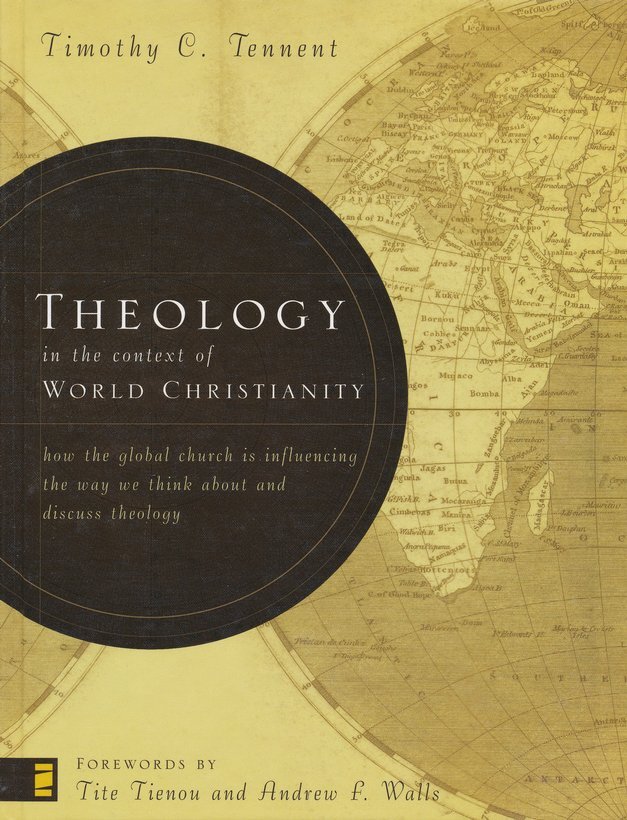Timothy C. Tennent, Theology in the Context of World Christianity: How the Global Church Is Influencing the Way We Think about and Discuss Theology. Zondervan, 2007.
Referenced in: Theology of Mission – Localized Theologies/Contextualization
LifeandLeadership.com Summary
LifeandLeadership.com is not focused on global missions, but upon work within established churches in North America (primarily U.S.). Nevertheless, cultural shifts have forced American churches to realize they are missionaries in their own context. This has spurred interest in disciplines that were once confined to missiology. One of these disciplines is contextualization.
In this text, respected missiologist Timothy Tennent defines contextualization:
“To communicate in word and deed and to establish the church in ways that make sense to people within their local cultural context, presenting Christianity in a way that it meets people’s deepest needs and penetrates their worldview, thus allowing them to follow Christ and remain within their own culture.” (227)
This is contrasted to extractionism: “A term used in missiology for the practice of excessive separation from one’s cultural context.” (278)
Certainly theology is not determined by demographics alone. There is a transcendent core message in scripture that may be expressed differently in various cultures but remains (or should remain) the same message across the boundaries. But as texts such as Dean Flemming’s Contextualization in the New Testament demonstrates, the practice of contextualization is a deeply biblical and practically necessary enterprise.
LifeandLeadership.com summarizes several texts on contextualization that are devoted to the North American setting. Tennent’s volume is different in that it addresses the globalization of Christianity, and specifically how the gospel is contextualized in Africa, Asia, and Latin America that are dominated by religions such as Islam, Hindu, and ancestral worship. These continents have the majority of Christians in the world today. Yet clearly when the essential teachings of scripture are “translated” into these contexts, the gospel is targeted to issues not pertinent to North America. Nuances of the biblical witness that North Americans may overlook as too removed from their concerns are elevated in importance. Is the Father of Jesus the God of Mohammed? What is the relationship of Hindu sacred texts to the pre-Christian past? How does a biblical anthropology address the shame-based cultures of the Far East? How do Latin Americans punctuate the role of the Holy Spirit? Tennent takes up these and other questions.
How does Tennent’s volume help church leaders in North America? It demonstrates what it means to shape the Christian message so that it makes maximum impact in one’s communication context. It also helps those whose North American settings are internationally diverse or “glocal” (i.e. where global diversity has become a local reality in a given address). I think of a church in Atlanta, Georgia where the population around its building has shifted to incorporate immigrants from four different continents. If they wish to be truly “missional,” they must contextualize to their “glocal” setting. Certainly one will need more than Tennent’s volume if they take this task seriously, but it is a great place to start.
Missional church practitioners cannot help but benefit from reading this text. It does not look at the cultural realities of North America. Other texts do that. But it does provide an excellent window into how culturally sensitive theology is done.
From the Publisher
It’s no secret that the center of Christianity has shifted from the West to the global South and East. While the truths of the Christian faith are universal, new contexts bring new questions, new understandings, and new expressions. What does this mean for theology? Is the Christian faith not only culturally translatable, but also theologically translatable? Timothy Tennent answers this question with a resounding yes. Theological reflection is alive and well in the majority world church, and these new perspectives need to be heard, considered, and brought into conversation with Western theologians. Global theology can make us aware of our own blind spots and biases. Because of its largely conservative stance, global theology has much to offer toward the revitalization of Western Christianity.
Tennent examines traditional theological categories in conversation with theologians from across the globe, making this volume valuable for students, pastors, missionaries, and theologians alike.
About the Author
Timothy C. Tennent (PhD, University of Edinburgh, Scotland) is professor of World Missions and Indian Studies and director of missions programs at Gordon-Conwell Theological Seminary in South Hamilton, Massachusetts. He is the author of Building Christianity on Indian Foundations and Christianity at the Religious Roundtable. Dr. Tennent and wife, Julie, reside in Ipswich, Massachusetts, with their two children, Jonathan and Bethany.
***For additional information on this resource, including reviews, click the bookstore links. Check the reference at page top or the links below for resource guides on related topics.***
Related Ministry Resource Guides:
- Missional Perspectives 01, Introduction
- Missional Church Resources, Introduction and Index
- Missional Philosophy
- Theology of Mission
- Missional Communities
- Missional Leadership / Missional Strategies
- Missional Lifestyle, Discipleship, Spirituality
- Church Leadership and Renewal, Index to Resources
- Ecclesiology
- Evangelism
See Resources on Over 100 Areas of Ministry Leadership:


